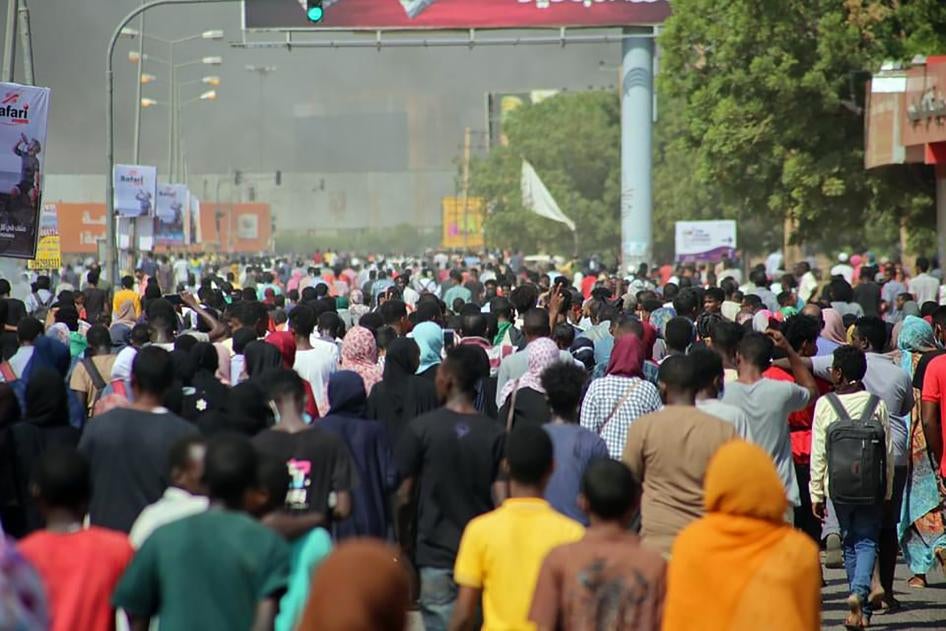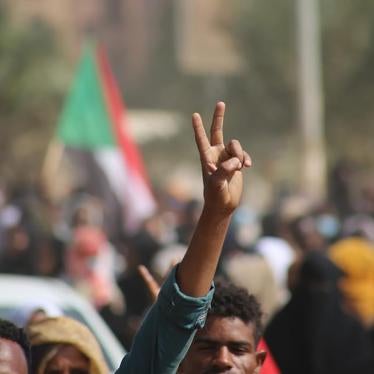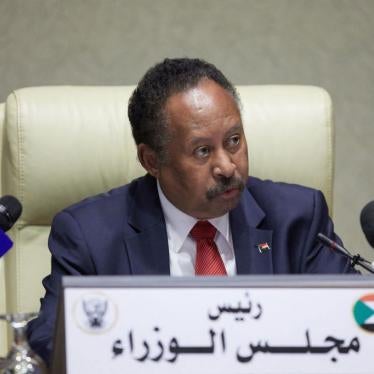When Sudanese from all walks of life woke to the October 25 news that the military had taken over control of the country and arrested key government officials – including the prime minister Dr. Abdalla Hamdok – many immediately took to the streets. What happened next was all too familiar to those who have repeatedly risked their lives to fight for a fairer, more rights-respecting Sudan.
Military forces, including the country’s notorious Rapid Response Forces (RSF), Sudan Armed Forces (SAF), and Central Reserve Police (CRP), a militarized police unit, were deployed throughout Khartoum. As has been all too common, including during the transition period following the ousting of ex-president Omar al-Bashir in 2019, these forces rapidly resorted to excessive and lethal force against the peaceful protesters. Doctors’ groups have confirmed that at least five people were killed and more than 200 injured. Although authorities have severely disrupted both telephone and internet access, videos that emerged showed security forces firing at people as they fled.
Since Monday the military has also arrested at least 11 officials and activists. Some may have been forcibly disappeared as the whereabouts of most remain unknown.
Many protest groups, calling for the military to immediately rescind power, have called for large protests on October 30.
Sudan’s security forces have long stymied peaceful protests. Sudan relies all too heavily on military or militarized forces for crowd control, forces that regularly resort to excessive and lethal force. The RSF led a violent dispersal of a sit-in in Khartoum on June 3, 2019, which left more than 120 dead. Events of the last few days have been a chilling reminder of that period and of how far these forces will go to silence dissent. Even during the transition, the government continued to resort to militarized crowd control, leading to abuses.
Ending this practice should have been a priority of all, Sudan’s partners included, during the transition. It was not.
With protests planned, international and regional actors should make clear that respect for the rights to peaceful assembly and expression is non-negotiable and military forces should not be deployed to repress those rights. UN rights monitors should be scrutinizing these actions and the Human Rights Council urgently re-establishing international scrutiny on Sudan.









